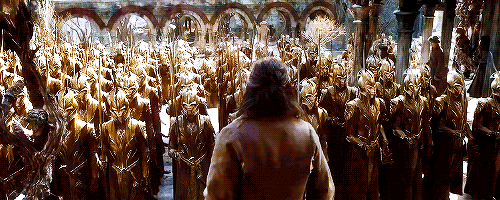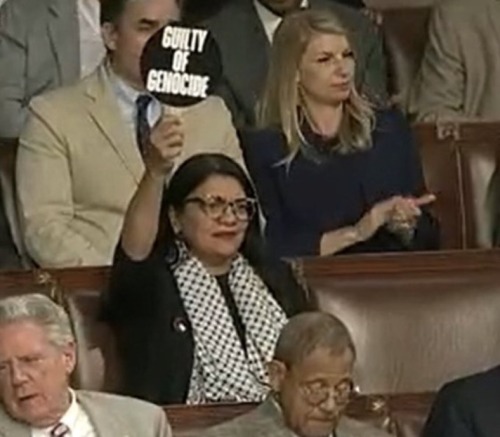A Child Goes Missing Late One Night After Investigating A Light Emanating From Their Closet. The Child's
A child goes missing late one night after investigating a light emanating from their closet. The Child's teddy bear and the monster that lives under the bed must put aside their differences and form a truce in order to rescue the child.
More Posts from M0th-b0nes and Others
Character A is a bit of a party animal, but has decided to tone it down for this celebration because it’s in character B’s honor/important for B in some way and they are determined to not mess this up for them.
The antagonist spikes A’s drink, and A knows something is wrong and can’t think of a plan further than “Find B, they will know what to do.” However, their motor skills are seriously impaired, so they end up taking out a major decoration/food table/something noticeable. B is mortified, and grabs A’s arm and takes them to the side.
“You told me you wouldn’t do this, I can’t believe you!” B hisses. A tries to explain, but their speech is so slurred that they can’t get it out.
“God, look at you! You know how important this is for me. I do so much for you, and you can’t even be chill for one night.”
The antagonist come up, and offers to take A outside for some air, and A is desperately trying to tell B to not trust the antagonist but they just /can’t/.
B thanks the antagonist and doesn’t even suspect anything is wrong until they can’t get ahold of A the next evening.
song of the summer (via muco_0 on tiktok)
World Building Tips: Empires and Power Structures
World building is important in any setting. There are places, such as fantasy literature where it can become the difference between a believable world and an unbelievable one. Suspension of disbelief is often a critical part to stories.
Many fantasy books take place during times of war, or revolution or even a fall of a corrupt empire. I love reading these sorts of stories, as many people do. Power structures can be complex. They can be used to create tension and drama between characters - take for instance the hero versus the corrupt government troupe in fiction such as The Hunger Games, Harry Potter or even more traditional fantasies such as Tigana ( by Guy Gavriel Kay) or The Wheel of Time series (by Robert Jordan). As a reader it can be compelling to follow these stories. For writers though, it can seem daunting to go into the details of shaping a believable power structure. Here are some basic tips for creating one.
There are four crucial factors to any power structure. These are as follows:

1. Military - this includes the size of the army, the types of technology used (guns or swords? navy or land army?), the basic structure of the army (is it highly regimented like the Romans? What are the different groups within the army? How are they divided - by technology, skills or social status?). Another important question here is why has the military developed in this way? The Roman military, for example, grew out of competition with other Italian states. The opposition is equally important here - who were/are they within your story? Apply the above questions just as much to them, because empires and other structures are influenced by the world around them. The military can be the reason an empire begins in the first place. The military should also play a role in sustaining the power structure/empire. It doesn’t have to be the strongest factor by any means. It may even become the downfall of the structure in the end.

2. Economy - How is your power structure or empire funded? Does this change over time? Does your empire take part in internal or external trade? Is trade important to the running of the empire? Resources such as crops, fertile land or people are also a part of this and influences the larger actions (such as conquest) your structure takes towards other countries. Trade can be a form of control and influence as well, even outside of the structure’s territory. In terms of story, a lot of decisions that are made involve trade or economic reasons - no one wants to get on the wrong side of someone who controls valuable resources or trade with other entities. The British Empire was based mainly on trade and this insured a global influence even as it declined in actual power.

3. Administration: The system of government and the way it manages itself is important to know. Is it a traditional monarchy or a democracy? How is leadership decided? How is power delegated throughout the larger administration? Hierarchy? One person can’t do or know everything. In terms of empire and conquest this is equally important. Does the empire recruit the local elites from conquered areas to administer to the general public, like the Romans? If your story is set in the outskirts of your empire, this could effect the outcome of the story - local elites might enjoy the power they have gained through an alliance with the larger empire and thus be unwilling to revolt against it. What other ways does your power structure control its territory? Does it use culture, or a set language to spread out into new territory? What kind of empire is your empire? Is it land based (only conquering territories linked by land) or maritime (navy focused with overseas territory)?

4. Culture: How does your power structure interact with its subjects? Even in a small area, different ethnic groups exist, so what unites all of them together? Are they all united, or is there groups of people the power structure leaves out? Have they always been left out deliberately or have these groups formed over time?How does the the government and the people from inside the empire view outsiders and their culture? Does this influence your story or characters? Do negative stereotypes or different language create a barrier between your character and others? In newly conquered areas is the empire’s language, laws and social ideals endorsed to locals or is it forced upon them? Is religion important to how the empire works or interacts? For example, before war do the gods need to show approval for the empire’s commanders? What about clashes of religion with other areas? Where do cultures intersect? Is your empire influenced by an older power or a hard past? What is seen as integral to your structure’s culture - art, literature, music etc? Are allies connected with your structure through culture, a shared distant history?
Most power structures rely on all of these factors - but none are ever equal in importance. Your government will identify one or two of these areas as important and focus on them. This can impact how the structure comes together and eventually falls apart - the greatest strength becomes a weakness, or something is overlooked until it is too late.
This is a long post - so I’m going to leave it here for now. If you guys have any questions, feel free to use the Ask feature to contact me.
Resources For Worldbuilding

Culture & Society
Creating Fictional Holidays
Music For Your Fantasy World
Creating Religions & Belief Systems
How to Design Your Diabolical Cult
Historically Accurate Sexism in Fantasy: Let’s Unpack That
Debate with the Squirrels: Sexism in Fantasy
Feudalism
Using Politics In Fantasy Fiction
Mythic Justice – Crime and Punishment in Your Fantasy World
Government Worldbuilding
Realistic Political Strife
A Politics Of Worldbuilding
Language
Creating a Language
The Language Construction Kit
The International Phonetic Alphabet – Audio Illustrations
Fantasy Name Generator
Geographic Names
Medieval Names Archive
Squid Name Generator
Model Languages
Xenolinguistics
History
Prehistory
Mythos
History
Today
Myths, Creatures, and Folklore
Encyclopedia Mythica
The Ancient History Encyclopedia
Using History as Inspiration for Fantasy
Victorian Era Family Day Life in England
Peasant Life in the Middle Ages
Everyday Life in the Middle Ages
English Monarchs
Feudal Japan
The Story and Structure of the Iroquois Confederacy
Science + Geography
Dimensions
Solar Bodies
Climatology
Planetary Geography
Water Geography
Cartography, Maps, Star Charts, and Writing
Fundamentals of Physical Geography
Dating of Middle-earth events, using Precession of the Equinoxes and Tidal Friction
Orbital Operations in Science Fiction
Planet Designer
Artificial gravity calculator
Natural gravity calculator
Selden’s Catalogs of Objects for Celestia
Medieval Technology
Defining the Source, Effects, and Cost of Magic
How to Create a Rational Magic System
Miscellaneous
/r/worldbuilding
Fantasy World Generator
SciFi World Generator
Focused Ambiguity: Using Metaphor in Fantasy Writing
Space Engine
Terragen
The Five foundations of Worldbuilding
Setting the Fantastic in the Everyday World
Support Wordsnstuff!
If you enjoy my blog and wish for it to continue being updated frequently and for me to continue putting my energy toward answering your questions, please consider Buying Me A Coffee.
Request Resources, Tips, Playlists, or Prompt Lists
Instagram // Twitter //Facebook //#wordsnstuff
FAQ //monthly writing challenges // Masterlist
She deserves all the pets


Representative Rashida Tlaib (the only Palestinian member of the US Congress) holds up a sign saying "WAR CRIMINAL" and "GUILTY OF GENOCIDE" as Benjamin Netanyahu addresses Congress.
Quote Prompt
“My mom thinks that it’s weird that I’ve picked you as a father-figure, but she doesn’t mind. She wants it widely known that you're not my birth father, though. She was very clear about that. She says that under no circumstances would she ever fuck you.”
prompts for two characters moving in together??
yes ofc!!
prompts for characters moving in together
written
painting the walls together. no talking. just kind of enjoying eachother’s company as they focus and music plays in the background.
shopping for furniture together
being too lazy to even unpack the rest of the bedding on the first night in, so they camp out in the empty living room with a blanket and some throw pillows.
bickering when they realize a lot of small differences while unpacking. (like arguing over where certain things in the kitchen go)
lovingly staring at eachother when it all just finally clicks for the two of them.
giving them a massage when their shoulders ache after carrying boxes all day.
dialogue
“OKAY WAIT PUT IT DOWN IT’S TOO HEAVY.”
“there’s no pets allowed in the apartment? how could you have missed that?”
“i’m pretty proud of us.”
“i wouldn’t have done this with anyone else.”
“are you ready?”
“no way, your mom baked her pie for us as a welcome!”
-
 offbeatwyrd reblogged this · 2 weeks ago
offbeatwyrd reblogged this · 2 weeks ago -
 offbeatwyrd liked this · 2 weeks ago
offbeatwyrd liked this · 2 weeks ago -
 pawsune liked this · 3 weeks ago
pawsune liked this · 3 weeks ago -
 ace-anarchist liked this · 4 weeks ago
ace-anarchist liked this · 4 weeks ago -
 montyforever liked this · 1 month ago
montyforever liked this · 1 month ago -
 themagicthing liked this · 1 month ago
themagicthing liked this · 1 month ago -
 je-arts reblogged this · 1 month ago
je-arts reblogged this · 1 month ago -
 nyahsworld14 liked this · 1 month ago
nyahsworld14 liked this · 1 month ago -
 thiswebsiteforgotmyemailagain reblogged this · 1 month ago
thiswebsiteforgotmyemailagain reblogged this · 1 month ago -
 thiswebsiteforgotmyemailagain liked this · 1 month ago
thiswebsiteforgotmyemailagain liked this · 1 month ago -
 abraxax-heart liked this · 1 month ago
abraxax-heart liked this · 1 month ago -
 thefirstimagifabricator liked this · 1 month ago
thefirstimagifabricator liked this · 1 month ago -
 nenehyuuchiha liked this · 1 month ago
nenehyuuchiha liked this · 1 month ago -
 vicmillen liked this · 1 month ago
vicmillen liked this · 1 month ago -
 elidiot liked this · 1 month ago
elidiot liked this · 1 month ago -
 7nightshadow liked this · 1 month ago
7nightshadow liked this · 1 month ago -
 omsocks liked this · 1 month ago
omsocks liked this · 1 month ago -
 malfiora liked this · 1 month ago
malfiora liked this · 1 month ago -
 bunnightwing liked this · 1 month ago
bunnightwing liked this · 1 month ago -
 starpeep16 liked this · 1 month ago
starpeep16 liked this · 1 month ago -
 dreamingaboutsakuratrees reblogged this · 1 month ago
dreamingaboutsakuratrees reblogged this · 1 month ago -
 dreamingaboutsakuratrees liked this · 1 month ago
dreamingaboutsakuratrees liked this · 1 month ago -
 glitter-stained reblogged this · 1 month ago
glitter-stained reblogged this · 1 month ago -
 dance-with-ripples-of-starlight liked this · 1 month ago
dance-with-ripples-of-starlight liked this · 1 month ago -
 wherebearthere liked this · 1 month ago
wherebearthere liked this · 1 month ago -
 the-ducky-life liked this · 1 month ago
the-ducky-life liked this · 1 month ago -
 goofygooberingrn liked this · 1 month ago
goofygooberingrn liked this · 1 month ago -
 puffinthepenguin reblogged this · 1 month ago
puffinthepenguin reblogged this · 1 month ago -
 luckofthecosmos8 liked this · 1 month ago
luckofthecosmos8 liked this · 1 month ago -
 abcreblogs reblogged this · 1 month ago
abcreblogs reblogged this · 1 month ago -
 honeyteacakes liked this · 1 month ago
honeyteacakes liked this · 1 month ago -
 iloketf2 liked this · 2 months ago
iloketf2 liked this · 2 months ago -
 puffinthepenguin liked this · 2 months ago
puffinthepenguin liked this · 2 months ago -
 gd-archive reblogged this · 2 months ago
gd-archive reblogged this · 2 months ago -
 interestingideablog reblogged this · 2 months ago
interestingideablog reblogged this · 2 months ago -
 randomgirlyou reblogged this · 2 months ago
randomgirlyou reblogged this · 2 months ago -
 randomgirlyou liked this · 2 months ago
randomgirlyou liked this · 2 months ago -
 insomiacnightmare liked this · 2 months ago
insomiacnightmare liked this · 2 months ago -
 schlockamorph liked this · 2 months ago
schlockamorph liked this · 2 months ago -
 dragon-of-storytelling liked this · 2 months ago
dragon-of-storytelling liked this · 2 months ago -
 ridiculouspanda33 liked this · 2 months ago
ridiculouspanda33 liked this · 2 months ago -
 cookiecatie liked this · 2 months ago
cookiecatie liked this · 2 months ago -
 badazzstuff reblogged this · 2 months ago
badazzstuff reblogged this · 2 months ago -
 writtingrubberducky liked this · 2 months ago
writtingrubberducky liked this · 2 months ago -
 newmanburg liked this · 2 months ago
newmanburg liked this · 2 months ago -
 etheravenlivrenvari liked this · 2 months ago
etheravenlivrenvari liked this · 2 months ago -
 mydicksfallenoff liked this · 2 months ago
mydicksfallenoff liked this · 2 months ago -
 milsinliasmor5ok reblogged this · 2 months ago
milsinliasmor5ok reblogged this · 2 months ago
